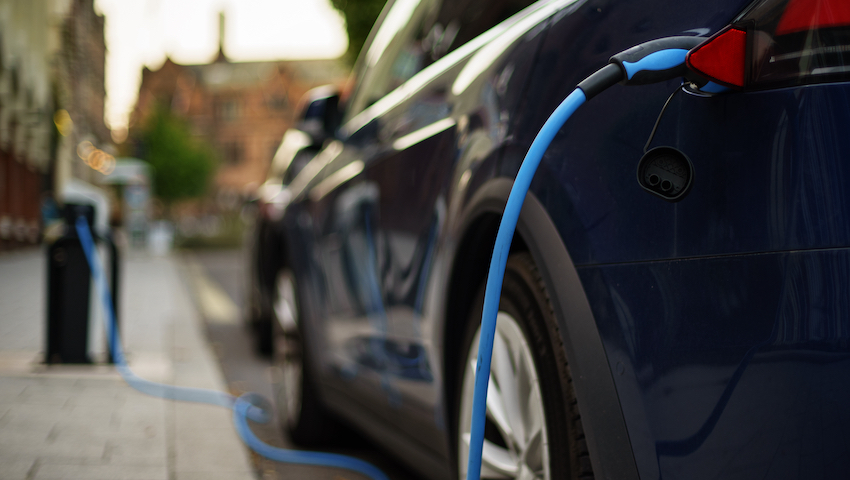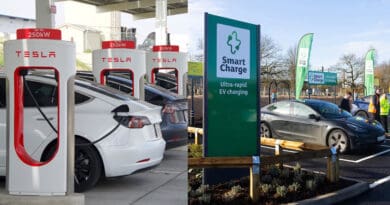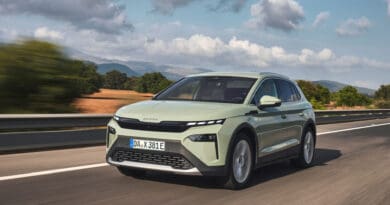
Commons committee recommends reduction of VAT on street EV charging
The Commons Transport Select Committee has called for a reduction of VAT for electric vehicle street charging as part of a wider report on EVs.
In the report ‘Zero emission vehicles’, MPs on the Transport Committee delivered a set of recommendations to Government to boost the production and purchase of electric vehicles as the net-zero deadline approaches.
One of the key recommendations was for Government to address the discrepancy between the 5% VAT incurred for home charging and 20% VAT for on-street and to ensure consumers are protected from excessive costs when charging in public.
The report states: “With charging at home substantially cheaper than on-street charging, pricing must be fair for people who charge their electric vehicles in public spaces.
“The Committee welcomes the Government’s commitment to regulate interoperability between charge points and pricing transparency for public charge points later this year. However, mandating industry to use pricing to move consumer behaviour towards a ‘little and often’ refuelling habit will also help.”
Chair of the Transport Committee, Huw Merriman MP, commented: “Putting guarantees in place on infrastructure is crucial but one report after another flags concerns to Government about the provision of electric car charging infrastructure. Let ours be the last: it’s time that ministers set out the route map to delivering a network of services for everyone across the UK.
“The Government’s inclusion of a ZEV mandate in a recent consultation is welcome but not enough on its own. Charging electric vehicles should be convenient, straightforward and inexpensive and drivers must not be disadvantaged by where they live or how they charge their vehicles. Shifting the subsidy from the taxpayer to the manufacturer will incentivise those who deliver the fewest electric vehicles in our showrooms to up their game.”
This report comes less than a week after the Competition and Markets Authority raised its own concerns over the slow roll-out of nation’s public charging network and an existing postcode lottery of chargepoints.
It called for an increased roll-out of rapid devices so that charging an EV could be ‘as simple as filling up with petrol or diesel’.
The Transport Committee’s paper provides a raft of recommendations to improve the public charging network in Britain, amid fears that there will be an infrastructure postcode lottery, with drivers in rural and remote areas and those without off-street parking having limited access to devices.

Other recommendations include working with the National Grid to map national coverage to eradicate ‘not-spot’ areas and identify locations where the Grid will not cope with additional usage.
Unless charging habits change, or the National Grid is strengthened, concerns exist that the charging needs from millions of new electric vehicles will cause blackouts to parts of the country.
Merriman MP added: “Unless the National Grid gains more capacity, consumer behaviour will have to alter so that charging takes place when supply can meet the additional demand. The alternative will be blackouts in parts of the country. We also cannot have a repeat of the broadband and mobile ‘not spot’ lottery which would mean those in remote parts cannot join the electric vehicle revolution.
Elsewhere in the report, the committee calls for support for sub-national transport bodies and local authorities to deliver sufficient and well-maintained charging infrastructure solutions tailored to local needs.
It also recommends ‘ring-fencing’ a portion of the £90 million local charging scheme so local authorities can employ dedicated ‘charge point champions’ to deliver local charging infrastructure strategies.
The report also calls for Government to identify and address under-provision at locations outside the strategic road network, where grid connection costs and grid upgrades are expensive and the business case for investment is weak. It also recommends amending the wayleave regime for installing charging infrastructure to ensure that that regime does not act as a barrier to roll-out.
Whilst there is work to be done, Merriman that the country should still continue to accelerate the adoption of electric vehicles, in order for the Government to achieve its net-zero goals.
He said: “As car usage returns to pre-pandemic levels, we must keep our sights locked on the target: all new cars and vans should be electric by 2035 at the latest. To help consumers see their route to a zero-emission world, choosing to run an electric vehicle must be as seamless as possible. Today we offer a set of recommendations to help Government hit the accelerator on its ambition.”





